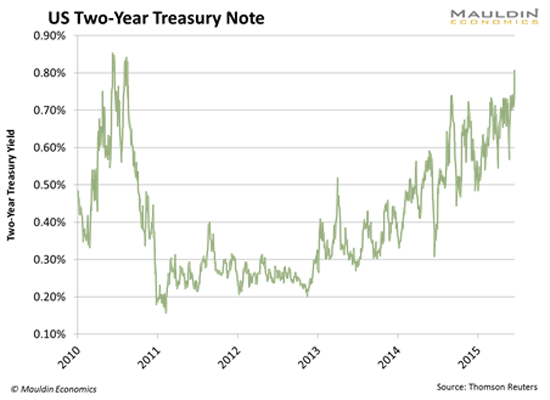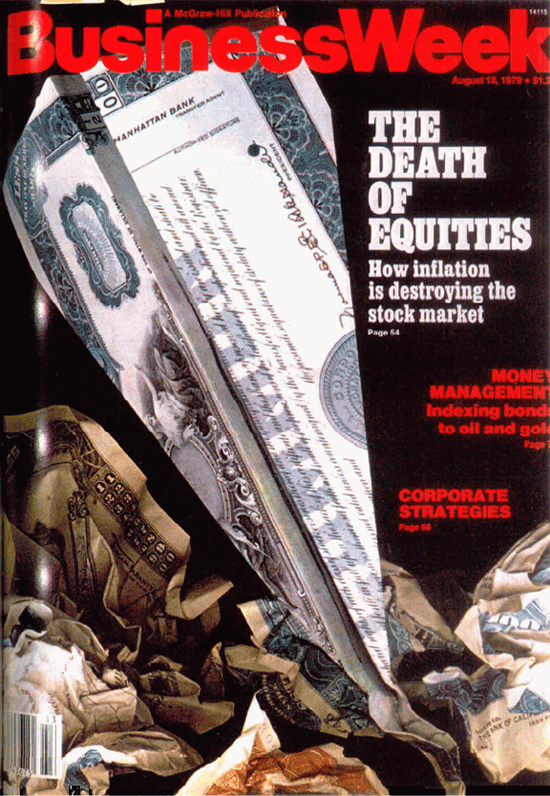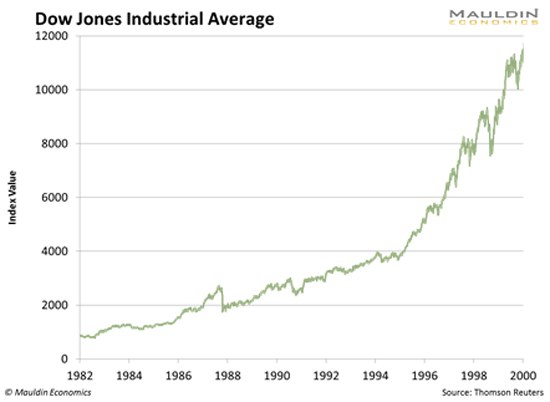No U.S. Interest Rate Hike Until 2017, It’s Always 1982 Somewhere
Interest-Rates / US Interest Rates Sep 25, 2015 - 08:11 PM GMTBy: John_Mauldin
 By Jared Dillian
By Jared Dillian
First, let’s get the gloating out of the way. I said that the Fed would not hike rates here and here. Nobody likes a chest pounder, so that’s the end of the discussion.
So now, what is the trade? Not only did the Fed not hike rates, but the directive was so dovish, it was far outside the range that any reasonable person thought was possible. Should be bullish, right?
Bullish on two-year notes.

For years, Jefferies Chief Market Strategist David Zervos recommended positions in “Spooz and twos” when faced with a Fed that had no interest in tightening monetary policy as the economy was recovering briskly. Now the Fed is on hold indefinitely.
Buy stocks? Maybe. Maybe just not in the US.
No Hike Until 2017
In my publication The Daily Dirtnap, I’ve been saying for a while now, for almost a year, that the Fed is on hold until 2017.
Of course, I can say that to my subscribers, but I have not (up until this point) said it publicly, because that’s a good way to get yourself labeled as some kind of crank. But after what just happened, this is starting to look less like a crank point of view, and I’m comfortable talking about it publicly.
Based on the FOMC meeting last week (and the subsequent market action), it is looking less likely that the Fed will hike interest rates this year. I would place the probability for a hike between 30 and 50%. Although, keep in mind, there is no press conference at the October meeting, and it’s very rare for the Fed to begin hiking rates in December.
Once you are in 2016, you are in an election year, and… this is the point people get a little touchy about, but the political implications are a lot larger than you may think.
The current Board of Governors are all Obama appointees (including two in the hopper) and presumably all Democrats. What if the Fed hikes in early 2016 and the economy goes into recession, with layoffs and everything that goes with it, right in the middle of a presidential campaign? It would surely hand the election to the Republicans.
The bar will be very high to hike rates in 2016.
People have told me that the Fed isn’t a bunch of political hacks and that I’m the one who’s a political hack, that they will do the right thing and raise rates in the face of widespread political opposition. I’m not so sure. There is a former administration official (Lael Brainard) on the Board of Governors. Undoubtedly, there is a line of communication with the executive branch.
I think if we have a President Bush/Fiorina/Carson/whoever in 2017, that we will get rate hikes out the wazoo (and a recession the size of Greenland on a Mercator projection).
Other Considerations
But the big story here isn’t politics, it’s emerging markets. It’s an open secret that the Fed didn’t hike because of “international considerations.” The IMF, on behalf of the emerging world, respectfully requested the Fed to refrain from hiking rates.
The Fed might not have listened to the IMF, but financial conditions were very scary precisely because of emerging markets, especially China. Brazil, too, is on the brink. A political crisis, debt downgrades, a bottomless stock market, high interest rates—a disaster.
If the Fed hiked rates, it would have poleaxed EM, perhaps fatally.
I think the Fed understood this.
But the Fed isn’t supposed to think about the rest of the world when setting monetary policy. The rest of the world can screw itself. You can’t take into account what’s going on halfway around the planet when you set monetary policy. Otherwise you would never hike rates! There’s always a crisis going on somewhere in the world.
And that’s what happened.
So this is worrisome for sure (unless you are long two-year notes).
Dark Days
I am barely old enough to remember this, but in 1980, Ronald Reagan was elected, and Paul Volcker was in the middle of ripping interest rates to the moon, which set off a hurricane-force recession. Off the top of my head, GDP was down 6%. Not the way you want to start off your term. But it was necessary, to get rid of inflation.
Now, in the middle of this, the stock market got to a point where valuations were at ridiculous extremes, with P/Es and dividend yields in the high single digits. It was the best time ever to buy stocks. But nobody wanted to buy stocks. That was the time of “The Death of Equities” Businessweek cover, the ultimate contrarian signal on the stock market.

The year was 1979. It was (almost) the best time ever to buy stocks. There may never be another time that good ever again, at least in this country.
But the funny thing about being a global investor is that it is always 1982 somewhere. There are once-in-a-lifetime opportunities, but they seem to happen about once every three months. You just have to look around.
EM is there.
- It literally is 1982 in India. Narendra Modi is Ronald Reagan, a free-market reformer. And he has popular support.
- If oil prices rebound, and they might, it will be great to be long Russia.
- It is perhaps 1979 or 1980 in Brazil. There is so much revulsion toward the current Workers Party leadership, there is a free-market revolution brewing. If Dilma is impeached, it is the biggest buy signal ever.
- What if China just had its crash of 1987? 1988 was a pretty good time to buy stocks.

Markets Love Liquidity
There is a school of thought that the market would have rallied on a rate hike.
No. That is dumb.
This line of reasoning is based on the idea that a rate hike would have removed uncertainty from the market.
Liquidity is always good. Lack of liquidity is always bad.
The stock market is throwing a temper tantrum because the Fed didn’t do enough.
Another round of quantitative easing is not out of the realm of possibility. It’s unlikely, but possible.
Then, it will be time for spooz and twos.
Jared Dillian
If you enjoyed Jared's article, you can sign up for The 10th Man, a free weekly letter, at mauldineconomics.com. Follow Jared on Twitter ;@dailydirtnap
John Mauldin Archive |
© 2005-2022 http://www.MarketOracle.co.uk - The Market Oracle is a FREE Daily Financial Markets Analysis & Forecasting online publication.



